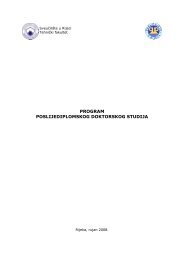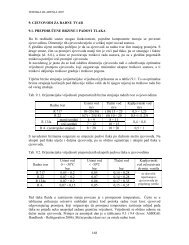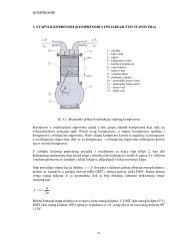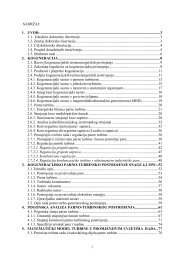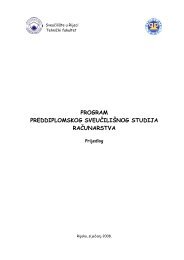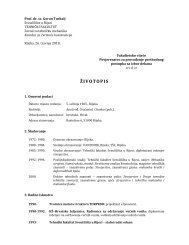universityâenterprise cooperation
universityâenterprise cooperation
universityâenterprise cooperation
You also want an ePaper? Increase the reach of your titles
YUMPU automatically turns print PDFs into web optimized ePapers that Google loves.
22<br />
Training 2010 program and it is implemented<br />
through the open method of coordination<br />
and indicators and provides support to the<br />
exchange of experiences and good practices.<br />
The Bonn Declaration - also appeals for the<br />
empowerment of all stakeholders throughout<br />
can be built the effective and sustainable<br />
university-enterprise <strong>cooperation</strong>. By this<br />
declaration there is a need for structured<br />
dialogue and decision, within and between<br />
relevant interested groups, and a better<br />
understanding of the dynamics of the<br />
knowledge society. By Bologna Process the<br />
position of higher education is in a crossroad<br />
of research, education and innovation, and<br />
in this position lays the competitiveness of<br />
Europe Community.<br />
Additionally, at the informal meeting at<br />
Hampton Court in October 2005, and at<br />
the 2006 Spring European Council, it was<br />
highlighted how university plays a primary role<br />
as foundation of European competitiveness,<br />
and how actions were needed by the end of<br />
2007 in the context of the renewed partnership<br />
for growth and employment.<br />
A concrete action of such policy is surely the<br />
Life-long Learning Program 2007-2013<br />
(Erasmus strand) has a specific line for projects<br />
on university-enterprise <strong>cooperation</strong>.<br />
In the Vision 2020 for European Research<br />
Area (Brussels, 2 December 2008) the<br />
Competitiveness Council stressed the vital<br />
importance of intensified interaction between<br />
policy areas, notably higher education,<br />
research and innovation.<br />
These themes were also recently at the<br />
center of the conference The Knowledge<br />
Triangle: Shaping the Future of Europe<br />
(Gothenburg, 31 August–2 September<br />
2009), focused on the central role the higher<br />
education in the knowledge triangle and for<br />
European competitiveness. The conference<br />
emphasized the need for continued political<br />
decision-making regarding the European<br />
Research Area and for development of the<br />
European Innovation Plan with main focus<br />
on the interaction between education,<br />
research and innovation at national and<br />
European policy level.<br />
3.1.4. Legislation<br />
European Commission has produced several<br />
legal documents on specific fields of EU<br />
activity: legislative instruments, preparatory<br />
acts, case law, etc.<br />
Documentation can be divided according to<br />
specific field of application. In particular, with<br />
regard to university-enterprise <strong>cooperation</strong>,<br />
five main groups of actions can be identified:<br />
• European Union policy in the field of<br />
research and innovation [46];<br />
• Recognition of diplomas and qualifications<br />
in the European Union [47];<br />
• Employment [48];<br />
• Lisbon Strategy [49].<br />
In particular the first one (research and<br />
innovation policy) collects a number of<br />
legislative instruments, preparatory acts<br />
and court judgments which cover almost all<br />
most important aspects of the issue:<br />
• Establishment of technology institutes;<br />
• Support to small and medium enterprises;<br />
• Founding;<br />
• Management of intellectual property in<br />
knowledge transfer activities;<br />
• Collaborations with extra-European<br />
countries;<br />
• Promotion of creativity and innovation<br />
through education and training;<br />
• Establishment of proper research area<br />
boards and councils.<br />
Also, in agreement with Lisbon strategy,<br />
European Commission stressed that:<br />
• A knowledge-based society and economy<br />
needs an adequate level of key competences;<br />
• Increases in workers’ skills and<br />
competences improve productivity,<br />
since a skilled workforce is better able<br />
to respond to the changes of a dynamic<br />
knowledge economy, while people with<br />
higher levels of skills and competences<br />
are more likely to be socially integrated,<br />
fulfilled and active citizens;<br />
• Economic growth will be influenced by<br />
broadness of actions: investment in skills<br />
and competences has to be extended



